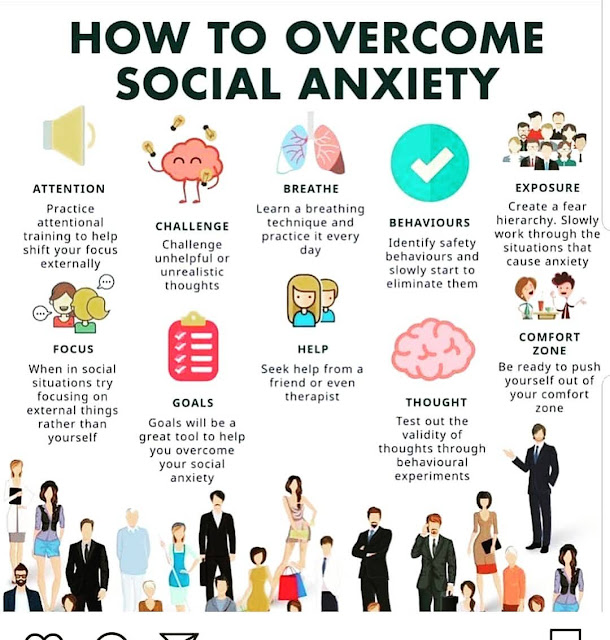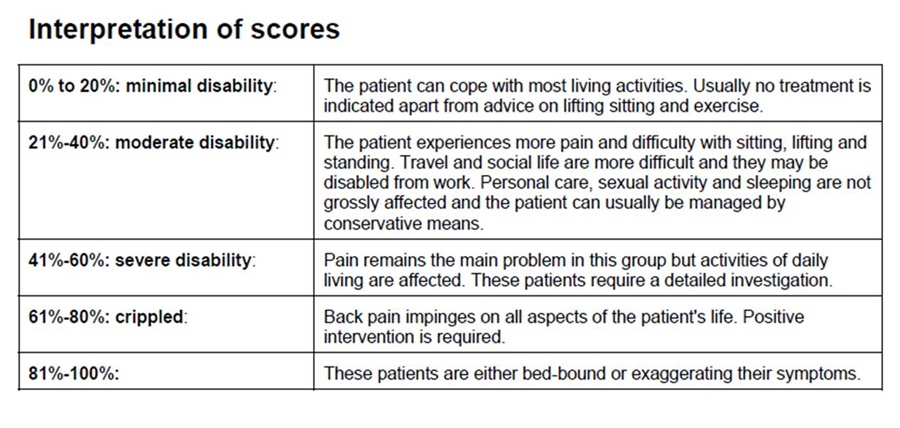How to beat social anxiety
How to Get Over Social Anxiety: 9 Expert-Backed Tips
Living with social anxiety disorder can mean that even the most casual social interactions leave you trembling, dizzy, and afraid of criticism or rejection.
Severe social anxiety can affect your day-to-day life by making it difficult to engage in commonplace activities, such as:
- talking with co-workers
- buying groceries
- eating in public
- attending classes at school
- going on dates
Managing social anxiety usually isn’t as simple as tossing yourself into a crowd, but it’s still an entirely achievable goal.
Looking for ways to feel more comfortable in social situations and interact with others more easily? These 9 strategies offer a place to begin.
Despite what some people might suggest, social anxiety goes beyond shyness, or feeling uneasy and nervous around new people. Social anxiety is a mental health condition, and it’s not always possible to work through symptoms yourself.
You can do a lot on your own to manage the anxiety and distress you experience, but getting professional support is always a good place to start.
A trained mental health professional can:
- offer more insight on the difference between social anxiety and shyness
- help you identify social anxiety triggers
- teach helpful coping strategies, social skills, and relaxation techniques
- offer guidance with challenging and replacing or reframing negative thoughts
Therapy also offers a safe environment to practice navigating anxiety-provoking situations through graduated exposure, one potential treatment for social anxiety.
Your therapist might recommend group therapy or support groups, which give you the chance to practice social skills and interact with other people also coping with social anxiety.
A therapist can also refer you to a psychiatrist, who can prescribe medication for social anxiety. Medication can provide some relief from severe symptoms, making it easier to start working through them in therapy.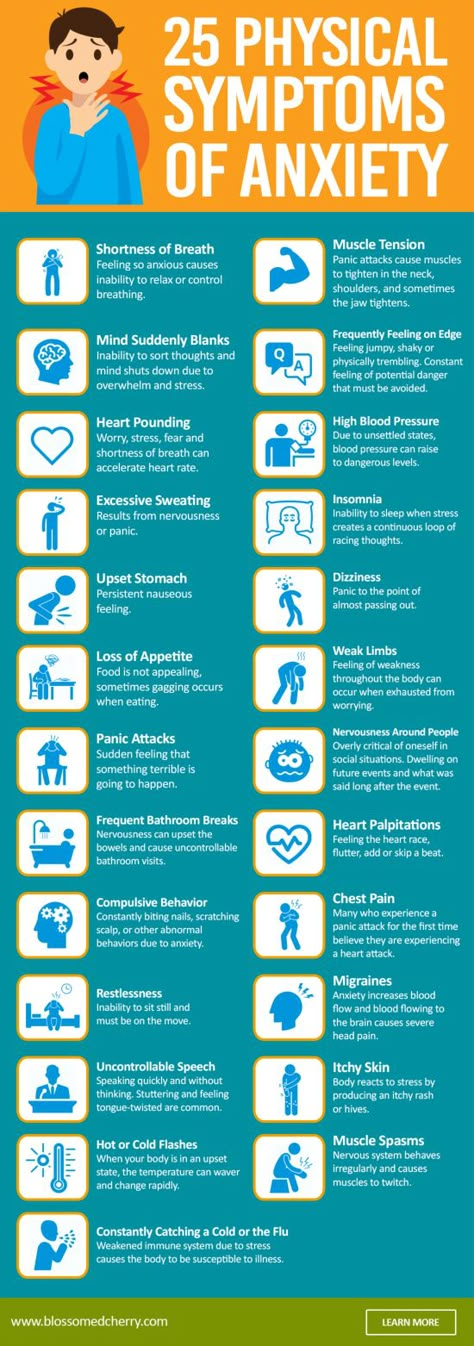
Social anxiety doesn’t show up in the same way for everyone.
You might feel anxious about any situation where you worry about others judging you, from ordering food at a restaurant to leaving for the restroom during a class lecture. On the other hand, you could feel mostly fine simply being around others — as long as they don’t expect you to share your thoughts or speak up.
Pinpointing why and when you feel most anxious can help you take the first steps toward finding solutions to power through those feelings.
Tip: Start by listing situations that cause the most discomfort, the ones you feel utterly unable to face. These might include:
- interviewing for a new job
- meeting with a professor to ask for help
- introducing yourself to someone you’re attracted to
Noting the symptoms you usually experience can also help you deal with them more effectively:
- Feel lightheaded and dizzy? Try slowing your breathing
- Worry everyone’s noticing your shaking hands or pounding heart? A grounding technique can help you refocus and stay in the present.

Chances are, you spend a lot of time thinking about the potential negative outcomes of those social situations you just listed.
You might worry about:
- accidentally saying something rude or offensive
- calling someone by the wrong name
- tripping or spilling something on yourself
- laughing, sneezing, or coughing at the wrong time
- getting sick in front of other people
These things do happen on occasion, and they certainly can cause some short-term discomfort. It can feel frightening to imagine yourself in a similarly awkward situation, but try to keep things in perspective.
Even if you do make a small social blunder, that doesn’t mean other people will look down on you. In fact, they might remember a time when they found themselves in a similar position and offer empathy and compassion instead. Bonding over past awkward experiences could even help you make a new friend.
When you begin to feel overwhelmed by anxious thoughts, try challenging and replacing them with more helpful ones through a technique called realistic thinking.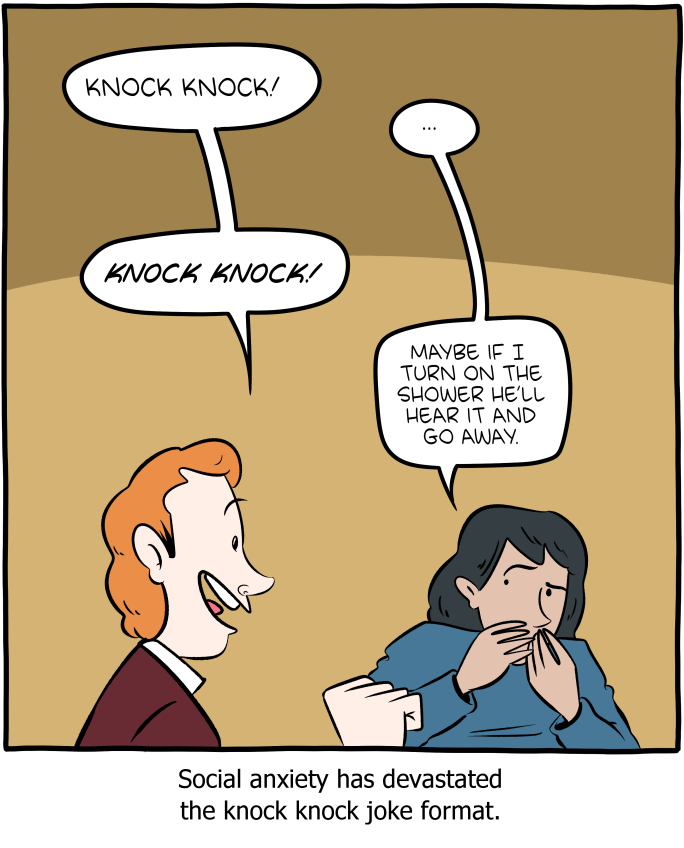 You can try this by asking yourself some basic questions about the scenario that’s worrying you and providing honest, balanced answers.
You can try this by asking yourself some basic questions about the scenario that’s worrying you and providing honest, balanced answers.
An exercise in realistic thinking
Say you’ve just started a new job, and your co-workers have invited you to their monthly happy hour. You’d like to get to know them better, but you feel terrified that you might say or do something that affects their opinion of you. Consider these questions and how you might answer them:
- What makes me believe I’ll say something embarrassing? I did once before, and people laughed.
- How many times have I spent time with other people and not said anything embarrassing? More than I can count.
- What’s the worst that could happen? Why am I so afraid of this? I want them to like me, not think I’m weird or socially awkward.
- Have you ever heard someone say something silly or awkward in public? How did you respond? I felt bad for them, but they laughed it off and no one seemed to care.
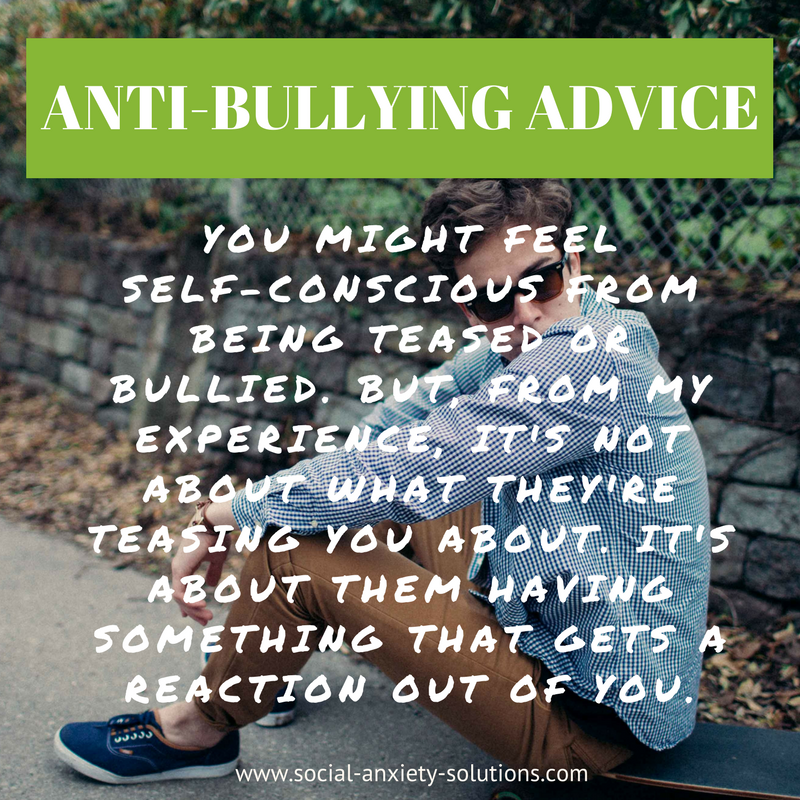
- What if you responded in the same way? They’d probably think I’m a good sport.
- What would you tell a friend worrying about the same thing? People will like you or they won’t. Making a mistake or joke that falls flat probably won’t affect their opinion overall.
Understanding the spotlight effect — the tendency to think others notice your mistakes more than they actually do — can also go a long way toward easing feelings of social anxiety.
You might believe everyone’s staring at you after an awkward faux pas, but most people probably didn’t even notice. Those who did? They’ll probably forget what happened pretty quickly.
When it comes to managing social anxiety, it’s just fine to start with little changes. You don’t have to volunteer to lead a meeting or strike up a conversation with everyone you meet.
A few ideas to try:
- At the store, skip the self-checkout and challenge yourself to make small talk with the cashier instead.
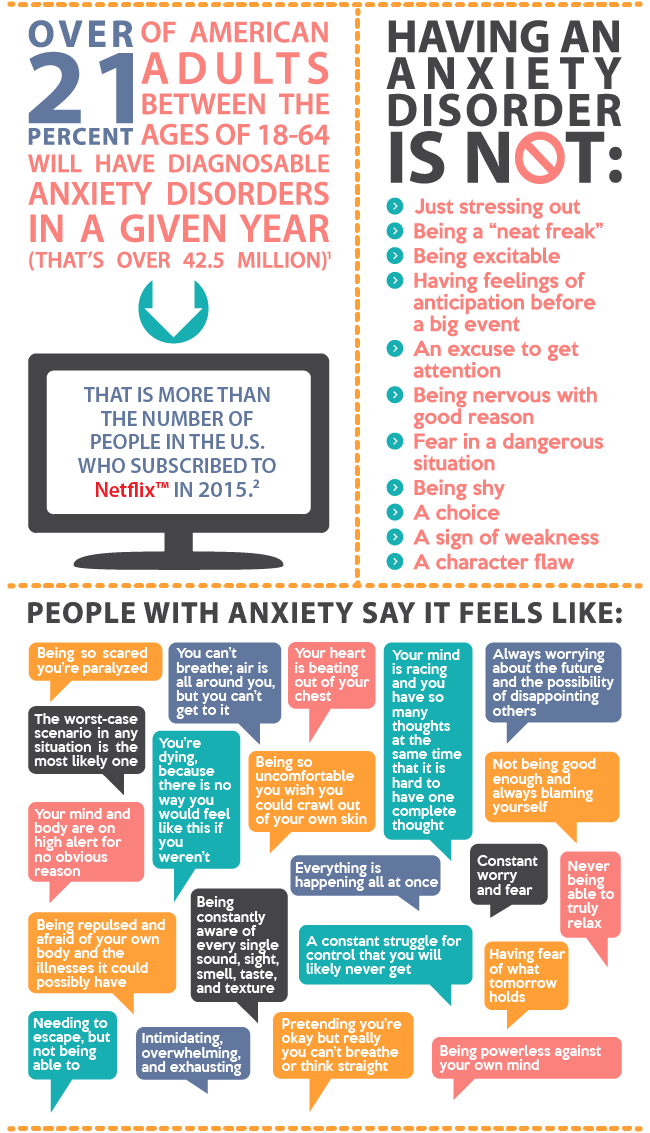
- Raise your hand in class to ask a question.
- Compliment a classmate’s or co-worker’s outfit.
- Host a small gathering for close friends and loved ones — socializing in your own space can help you feel more comfortable.
Some people also find it helpful to rename anxious feelings.
Instead of thinking “I feel so nervous about tonight,” try thinking “I’m so excited to see what people are like outside of work!” instead.
All those negative outcomes you worry about? Practicing ways to get through them ahead of time can help you feel more prepared to handle them if they come up during an interaction.
Ask a trusted friend or family member to role-play some everyday conversations with you.
A few scenarios:
- You’re searching for an item at the drugstore and have to explain what you’re looking for to the clerk.
- You pronounce the name of your friend’s date wrong and they correct you.
- Your boss asks a question during a work meeting and you give the wrong answer.
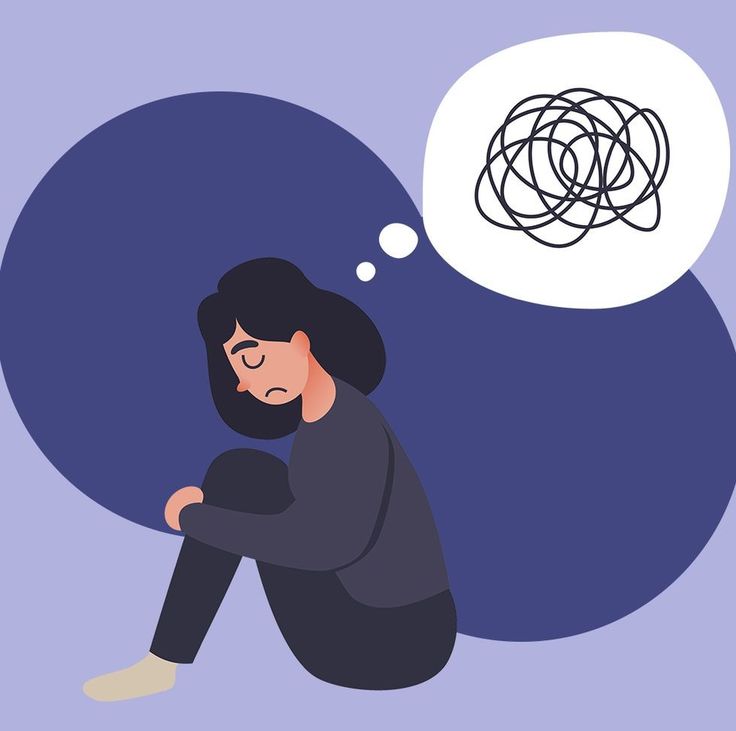
- You trip and fall in front of a large crowd of people.
Tip: To get more familiar with best- and worst-case outcomes, ask your conversation partner to offer different positive, negative, or neutral reactions.
Like general anxiety, social anxiety can involve overwhelming and uncomfortable physical symptoms, including:
- sweating
- a pounding heart
- difficulty breathing
- lightheadedness
- an upset stomach
Relaxation exercises can help calm these physical reactions, making it easier to manage worry, fear, and the other emotional symptoms you experience.
Try these:
4-7-8 breathing:
- Inhale slowly through your nose for a count of 4 seconds.
- Hold the breath for 7 seconds.
- Exhale slowly for a count of 8 seconds.
Progressive muscle relaxation:
- Slowly tense each group of muscles in your body, beginning with your toes.
- Hold the tension for a count of 5 seconds.

- Slowly exhale as you release the tension. Focus on the new looseness in your muscles for a count of 10 seconds, breathing slowly.
- Move on to the next muscle group and repeat.
Regular physical activity can also help improve your mood by easing anxious feelings and promoting relaxation.
In a 2015 study of 115 college students living with social anxiety, performing small acts of kindness for 4 weeks helped reduce the desire to avoid social situations.
The link between kindness and social anxiety may not be immediately clear, but it makes sense, when you think about it.
Social anxiety generally involves some fear of rejection or disapproval. But if you’ve just done something kind and thoughtful, like bringing a sick co-worker their favorite soup or offering to pick up your neighbor’s grocery order, the person you help is far more likely to have positive feelings toward you than negative ones.
Earning this approval on a regular basis can help decrease your fears around social situations, so you might find that interacting with others gradually becomes easier.
A drink or two often seems like a great way to ease social anxiety and feel more comfortable in social settings. Certainly, a small amount of alcohol can help you feel more relaxed — but alcohol can also intensify feelings of anxiety and leave you feeling worse.
If you regularly use alcohol to manage social anxiety symptoms, you could eventually reach a point where you find it impossible to socialize without alcohol. You might also end up needing to drink more to see the same effects.
Consider trying out a mindful drinking approach, which involves cultivating awareness around when you drink, how much you drink, and how it makes you feel.
What about cannabis?
Some people swear by cannabis for social anxiety, and evidence from 2015 suggests CBD may offer some benefits.
Just keep in mind not everyone responds to cannabis in the same way. It may not have much of an effect, but it could also worsen your anxiety. Always start with small doses and pay close attention to unwanted side effects before trying more.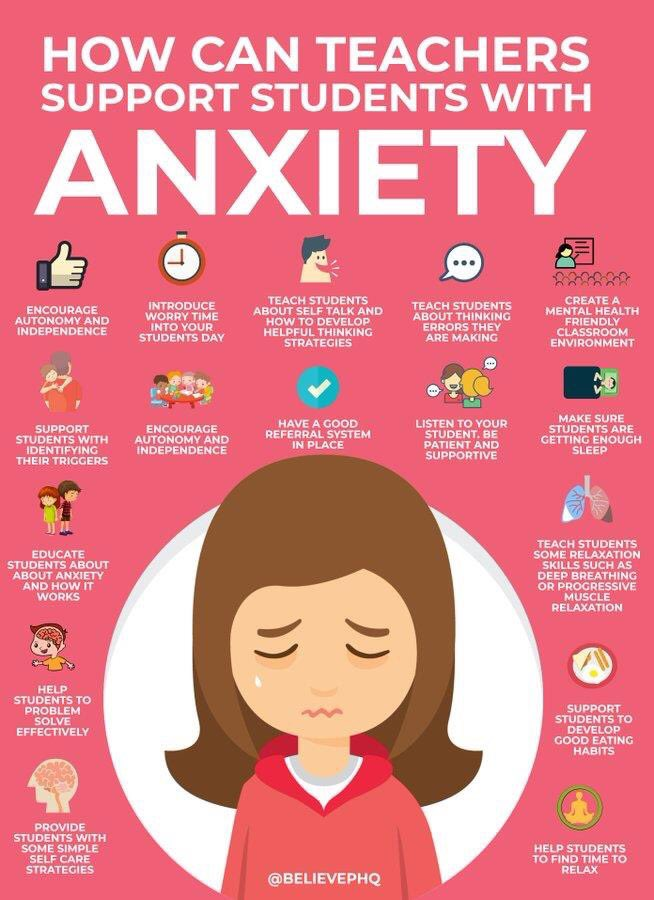
Learn more about using cannabis for anxiety.
OK, so you know avoiding social situations entirely won’t do much to improve social anxiety. But you’ll also want to steer clear of tactics that keep your participation superficial. For example:
- At parties, you keep busy in the kitchen, washing dishes and preparing food.
- When you find yourself in a conversation, you encourage the other person to talk about themselves.
- In a group, you stick to the edge, looking down at your phone so no one talks to you.
You might feel safer among the crowd when you show up without really engaging, but this doesn’t do you any favors when it comes to overcoming social anxiety. People may not reject you, but they can’t really get to know you unless you truly make an effort to interact.
Letting go of these not-so-helpful coping tactics may feel tough at first, but most people find the eventual payoff — improved relationships — well worth it.
Get more tips on making friends when living with social anxiety.
Feeling self-conscious around others and fearing the possibility of their disapproval can make it difficult to forge connections with potential friends or romantic partners.
It’s perfectly fine to stay single or have only a few friends. But when social anxiety holds you back from new relationships, a few changes can make a big difference.
True, some people you meet may simply not like you, but that’s OK. It happens. The more interactions you have, the more likely you’ll encounter people who really do get you — and welcome you with open arms.
Crystal Raypole has previously worked as a writer and editor for GoodTherapy. Her fields of interest include Asian languages and literature, Japanese translation, cooking, natural sciences, sex positivity, and mental health. In particular, she’s committed to helping decrease stigma around mental health issues.
6 Ways to Overcome Social Anxiety – Cleveland Clinic
If you feel out of practice socializing after the last few years of social distancing, you’re not alone. If you feel more anxious than usual when leaving the house to socialize, that’s also totally normal, as is occasionally feeling overwhelmed or out of your element in large crowds.
If you feel more anxious than usual when leaving the house to socialize, that’s also totally normal, as is occasionally feeling overwhelmed or out of your element in large crowds.
However, when these nervous feelings persist — and cause you great anguish — you might have a social anxiety disorder.
“Social anxiety is one of those disorders where the name is pretty accurate in describing what it is,” says psychologist Dawn Potter, PsyD. “It’s anxiety that occurs in a social situation. If you have anxiety that routinely pops up in social situations that causes distress or inhibits you from doing things you want to do, then we might start to consider this a disorder. A person with social anxiety disorder would have frequent anxiety, panic or significant discomfort in a social situation. Then they would want to avoid that situation, or would enter that situation with a lot of distress.”
Dr. Potter adds that there are different kinds of social anxiety. While one involves being uncomfortable with or avoiding social situations — either big or small groups of people you might not know well, whether in public or private — there’s also a specific type of social anxiety around public speaking.
“It’s performance-based only,” says Dr. Potter. “You would have anxiety about public speaking, but wouldn’t necessarily have anxiety about going to a party, ordering at a restaurant or speaking on the phone to an unknown person.”
Contrary to popular belief, being quiet in social situations, or preferring to socialize in small groups, doesn’t mean you have social anxiety — and this disorder isn’t synonymous with being an introvert. “Even if extroverts are generally outgoing and talkative, and like meeting new people, they can also feel nervous, anxious or on edge when meeting new people and performing in front of groups,” says Dr. Potter.
Dr. Potter stresses that it’s important to address your social anxiety, even if this feels difficult since it can have a major impact on your life. “It can have subtle negative effects on your career, friendships, dating life, or even family relationships,” she says. “It can affect you so broadly when you miss opportunities. When a person’s isolated, it can lead to depression because you miss opportunities to have a good time or enjoy yourself, and feel connected to other people.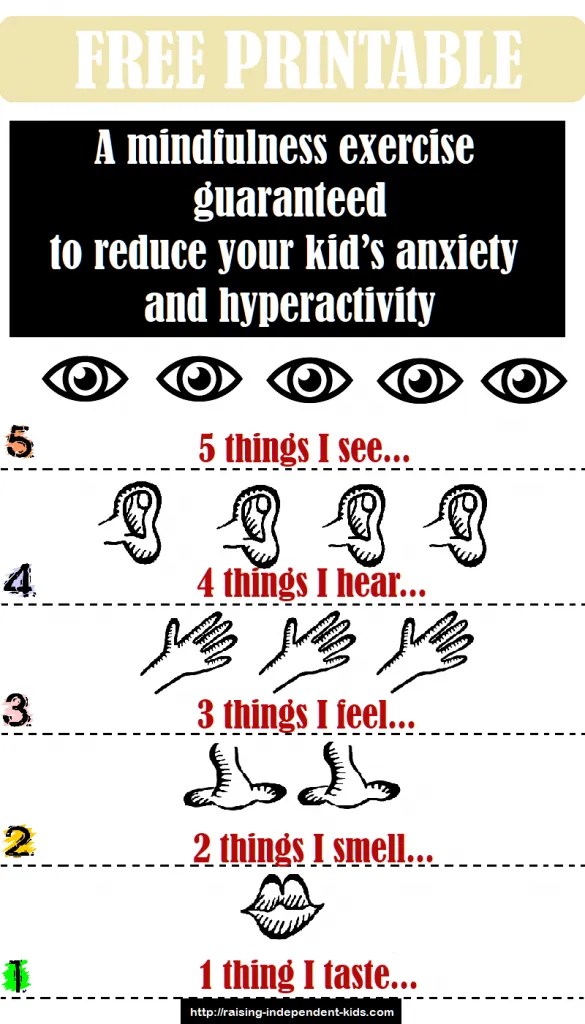 ”
”
Luckily, Dr. Potter notes that social anxiety is very treatable, although strategies for overcoming social anxiety depend both on your individual personality and how much the disorder is affecting your life. For example, if you have panic attacks when going out in public because you are so overwhelmed, you might opt for medication, psychotherapy or a combination of both. Less severe anxiety might be better served by a different treatment option.
Here are a few other ways to approach getting over social anxiety.
Advertising Policy
Practice public speaking
For those who have mild-to-moderate social anxiety disorder — for example, maybe it’s not causing you panic attacks — finding ways to practice public speaking is a good approach. Dr. Potter suggests joining a group such as Toastmasters, which is for specifically practicing public speaking and rehearsing.
Try cognitive behavioral therapy
Among the different kinds of psychotherapy available, cognitive behavioral therapy — which involves making changes to the way you think and feel about a situation, which, in turn, can help you modify your behavior — is a helpful way to approach social anxiety. “With social anxiety specifically, you want to identify patterns of thinking that cause you to avoid social situations — like if a person’s always expecting the worst outcome, or a person is fixated on the fact that someone might see them blushing, or sweating or stammering,” says Dr. Potter. “You want to help them learn to challenge those expectations and adopt more positive self-talk rather than negative self-talk.”
“With social anxiety specifically, you want to identify patterns of thinking that cause you to avoid social situations — like if a person’s always expecting the worst outcome, or a person is fixated on the fact that someone might see them blushing, or sweating or stammering,” says Dr. Potter. “You want to help them learn to challenge those expectations and adopt more positive self-talk rather than negative self-talk.”
Gradually introduce yourself to anxiety-inducing situations
Dr. Potter recommends what she calls “situational exposure.” Identify certain social situations you’re afraid of, and work your way up from easier to more difficult scenarios while practicing relaxation techniques so you can tolerate anxiety. “For example, if you have a fear of large groups, and you’ve been mostly avoiding group activities, start by going out with a friend one on one,” she explains. “Then work your way up to going out with a small group of friends.” Repeat as needed until you feel more comfortable before attempting to go to a restaurant, a bar or a party where there would be more people.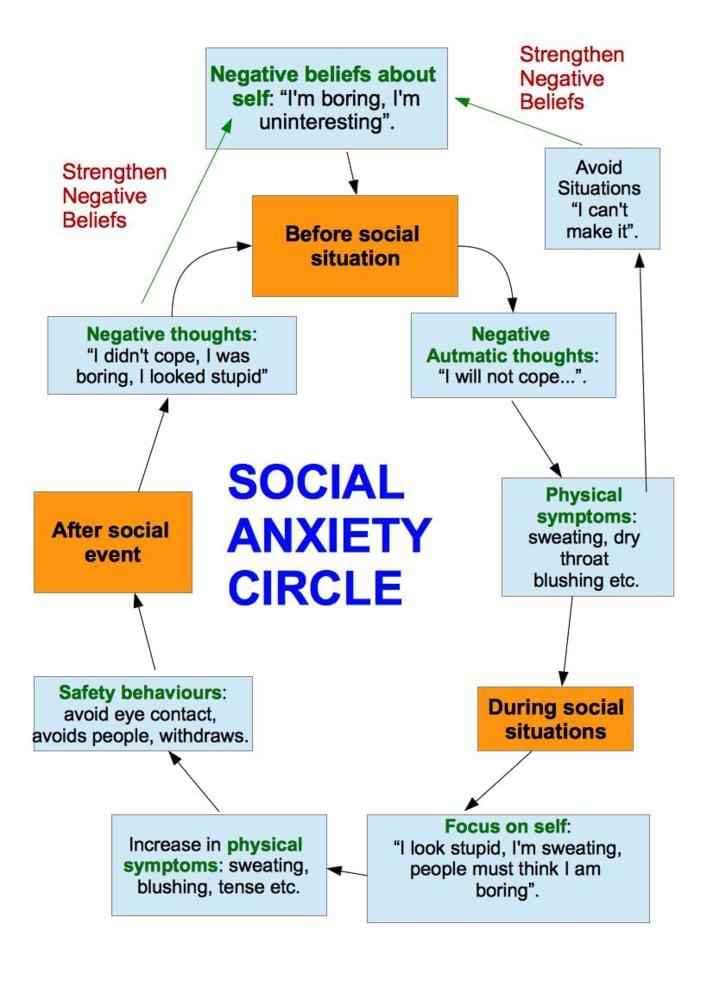 You can also work on situational exposure with the support of a therapist, Dr. Potter says. “Like cognitive behavioral therapy, exposure therapy is a type of treatment a trained psychologist can provide.”
You can also work on situational exposure with the support of a therapist, Dr. Potter says. “Like cognitive behavioral therapy, exposure therapy is a type of treatment a trained psychologist can provide.”
Ask your support system for a helping hand
It can be embarrassing or humbling to admit to people in your life that you’re anxious in social situations and might need help. However, letting a friend or loved one know you might need some extra support can be a major boost. “Many times, people are going to feel more comfortable if they’re in a social situation with somebody that they’re close to,” Dr. Potter says. “Especially if somebody has been fairly isolated in recent times, it can be helpful at first to have a buddy when you go back into a social situation.”
The key to this support is helping an anxious person become more independent over time. “Eventually, people with more generalized social anxiety will find it uncomfortable to go shopping or order food by themselves,” Dr.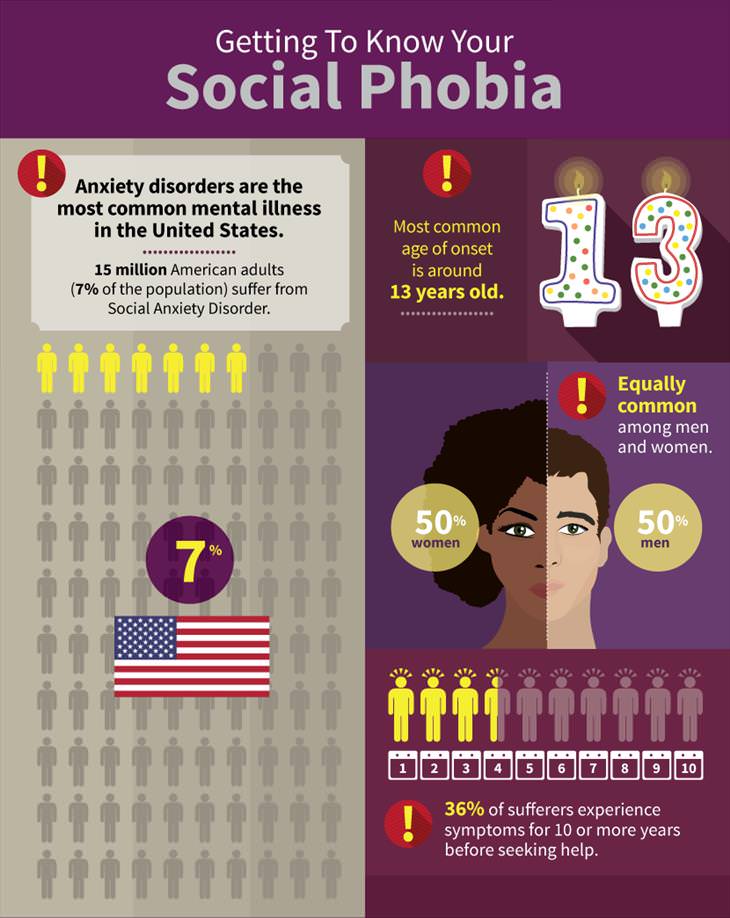 Potter explains. “You want to balance supporting a person and encouraging them to do it themselves.”
Potter explains. “You want to balance supporting a person and encouraging them to do it themselves.”
If you’re a friend or family member of somebody anxious in social situations, one way to offer support is to bring them into the conversation. “You might be like, ‘Oh, I think Sara has something she would probably like to say on that subject. She’s really interested in that,’” Dr. Potter says. “You can support them by bringing them out of their shells.” Before doing that, however, be sure to ask the person if that’s OK. “If you’re a person with social anxiety, you may not like being put on the spot to say something. Talk to that person in advance about how they want to handle certain things.”
Check in with yourself
When you’re out in public and start feeling anxious, it’s easy to spiral and become fixated on everything that appears to be going wrong, even if you’re the only one feeling that way. “In the moment, you need to focus outside of yourself and remind yourself, ‘This is probably anxiety.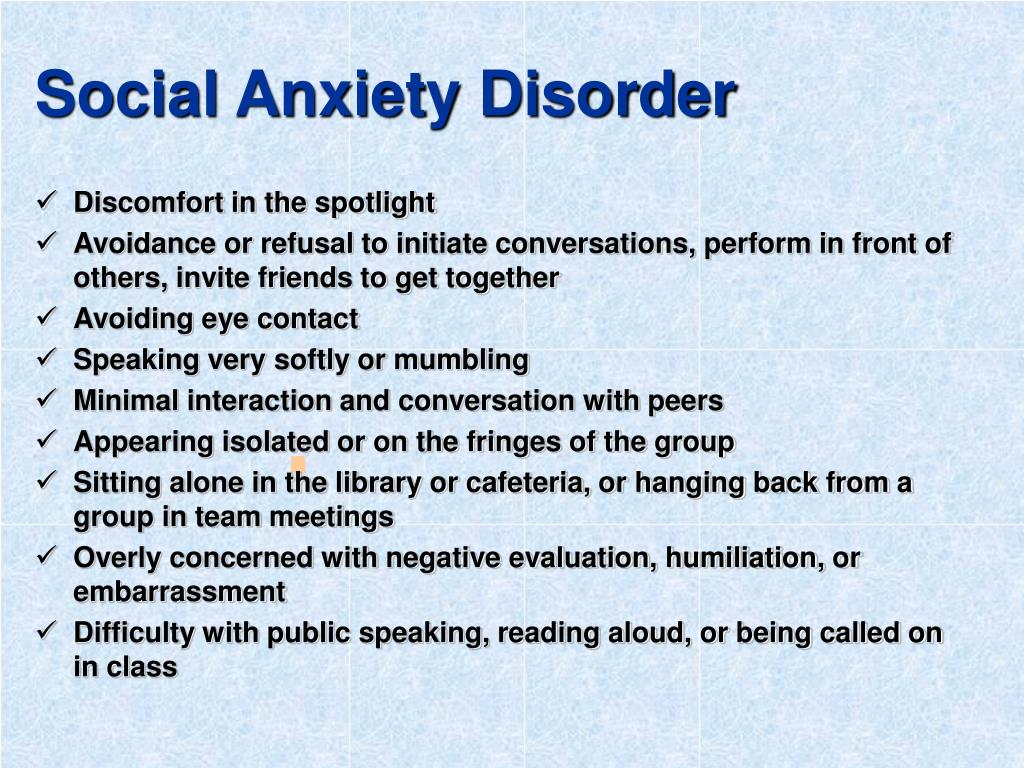 I can’t read their mind. I do not know what they’re actually thinking of me,’” Dr. Potter says.
I can’t read their mind. I do not know what they’re actually thinking of me,’” Dr. Potter says.
Advertising Policy
This is easier said than done, of course, so she suggests using a technique called “five senses” that can help you regain perspective and stay in the moment. “Do a check-in with yourself of all of your five senses to get yourself more externally focused. Distract yourself from unpleasant internal sensations and negative thoughts,” says Dr. Potter. “Then you can try to refocus on: ‘What are they actually saying to me? What else is going on right now? What can I see? What can I hear? What can I feel?’”
Look for silver linings — and be kind to yourself
If your social anxiety isn’t going away as fast as you’d like, that’s perfectly normal. “It might be that you moved too fast and need to spend more time practicing other social encounters before you’re up for the one you’re stuck on, or you need to work more on relaxation techniques and distraction techniques so you can tolerate that situation next time,” says Dr.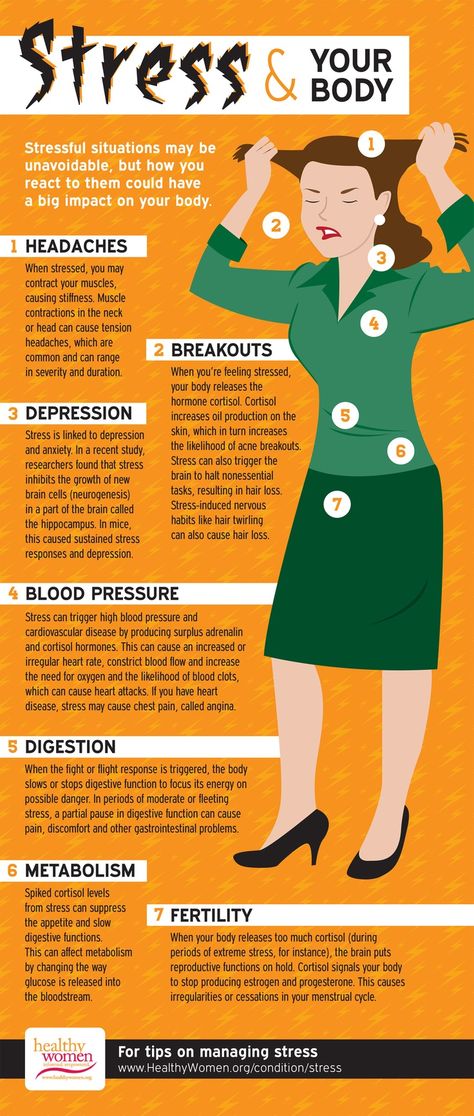 Potter.
Potter.
Analyzing after the fact what triggered a reaction, whether a panic attack or something else, can also help. “Try to break down, ‘How can I think about that differently?’ or ‘How can I change the situation next time?’” Dr. Potter suggests. “Let’s say you go to a concert and start to have a panic attack because you’re enclosed in by a lot of people. Maybe next time, you might sit in the back or on an aisle, or stay somewhere where you feel like there’s an exit route if you feel anxious or closed-in.”
Dr. Potter adds that other people are generally way more focused on themselves than they are on others. “They are most likely not scrutinizing your behavior in social situations, because they are busy thinking about what they are going to say or do next,” she says. “Your anxiety usually magnifies the negative and minimizes the positive — so the things you’re acutely aware of about yourself may not be particularly noticeable to others.”
When to worry about physical symptoms of anxiety
Social anxiety disorders can also lead to physical symptoms. “You might experience blushing, sweating, or a subjective sensation of feeling suddenly cold or warm,” says Dr. Potter. “You might also have physical tension, which could cause aches and pains, like a stomachache.”
You can also experience symptoms associated with panic, even if you don’t have a full-blown panic attack. “Panic symptoms are your heart beating fast, shortness of breath, a subjective feeling of losing control or a fear of sudden, impending doom,” says Dr. Potter. “People with social anxiety will typically experience some of these symptoms, including at a lower threshold, too.”
Determining whether these symptoms are from anxiety, or a more serious medical condition can be difficult. “If the pain goes away quickly after the anxiety-provoking situation has stopped, and if you have a subjective sense of knowing that you are currently afraid of something, then it’s more likely what you are feeling is probably anxiety,” says Dr. Potter. “But if you’re in doubt, you should definitely talk to a doctor about it and get advice on specific signs to look out for and what your risk factors are.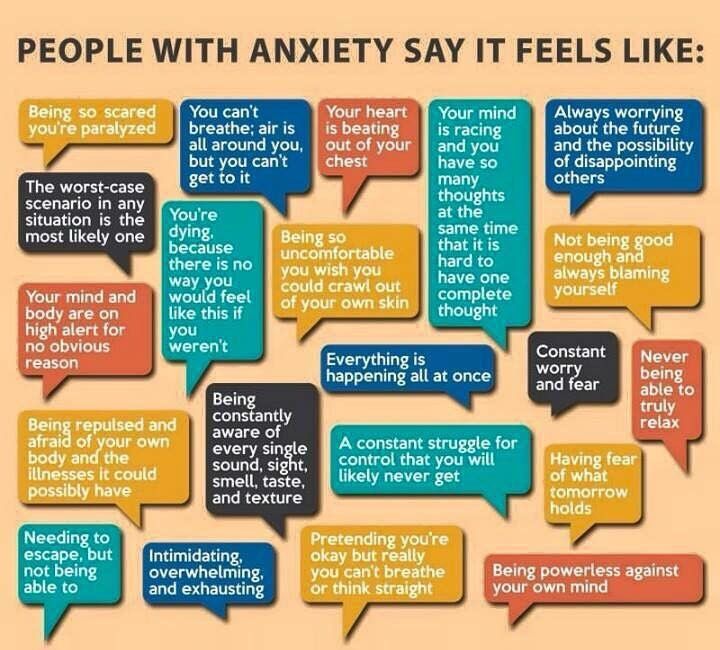 ”
”
If you have a known heart condition, this advice is even more important. “You want to be much more careful about seeking medical care for any of these types of symptoms,” she says. “And if you have cardiac conditions and you have anxiety, you should talk to your doctor about how to differentiate the two.”
How to get rid of social phobia on your own
Social phobia – how to get rid of social phobia on your own, when is it possible and how? In what cases can you not do without the professional help of a psychotherapist? What are the main psychotherapeutic methods effective in the treatment of social phobia? We asked Vladislav Sipovich, Chief Physician of the Health Harmony Medical Center, a practicing psychiatrist, psychiatrist-narcologist and psychotherapist, to answer these questions.
Social phobia - is it necessary to get treatment from a specialist or can you manage on your own? nine0007
First of all, I want to remind you what social phobia is, why it is dangerous and why its manifestations should not be ignored.
Social phobia, or social phobia, is an anxiety disorder manifested by the fear of communicating and social contacts, performing actions and working under supervision or in the presence of strangers. The most typical situations that cause fear in a sociophobe may be the following situations:
• Public speaking.
• Communicating with strangers and strangers not only through direct contact, but also by phone. nine0011 • Conversations with authoritative people, interviews, business contacts.
• Eating in catering establishments - restaurants, cafes, workers' and student canteens.
• Personal visits, parties, holidays and other social events.
• Being in a crowd, a large flow of people, including a stadium, a concert hall, a cinema, a supermarket, a large office building, etc.
• Visiting public toilets.
• Participation in team games, dance classes and any other activities that are performed in public and attract the attention of others. nine0003
Of course, not every uncommunicative or reserved person suffers from social phobia.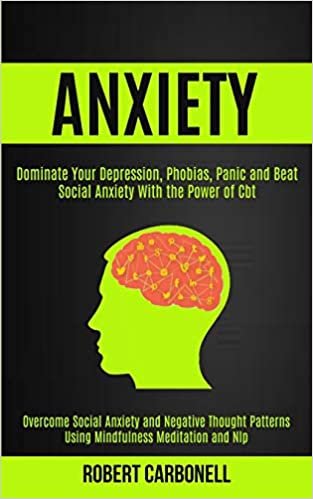 This may be just a feature of character, but the introvert does not feel fear of communication and, if necessary, easily makes contact without any anxiety. The sociophobe, on the other hand, is simply horrified by anxiety before the upcoming social contact or going out into the world. Even the most insignificant situation can lead to such a state, for example, a conversation with a seller or another buyer at the checkout, discussion of some issues in the audience, and even more so participation in discussions. nine0003
This may be just a feature of character, but the introvert does not feel fear of communication and, if necessary, easily makes contact without any anxiety. The sociophobe, on the other hand, is simply horrified by anxiety before the upcoming social contact or going out into the world. Even the most insignificant situation can lead to such a state, for example, a conversation with a seller or another buyer at the checkout, discussion of some issues in the audience, and even more so participation in discussions. nine0003
It always seems to a sociophobe that others are much smarter, wittier, more beautiful, more competent and more educated than he is. Therefore, he is constantly afraid of ridicule, condemnation, non-recognition and is afraid to express his opinion. Naturally, such a situation not only does not contribute to career advancement, but also hinders the development of a person as a person, and also significantly worsens the quality of his life.
In addition, manifestations of a phobia can be so strong that a person prefers to spend most of his time at home, practically never leave it, work remotely, and order groceries and other goods with home delivery.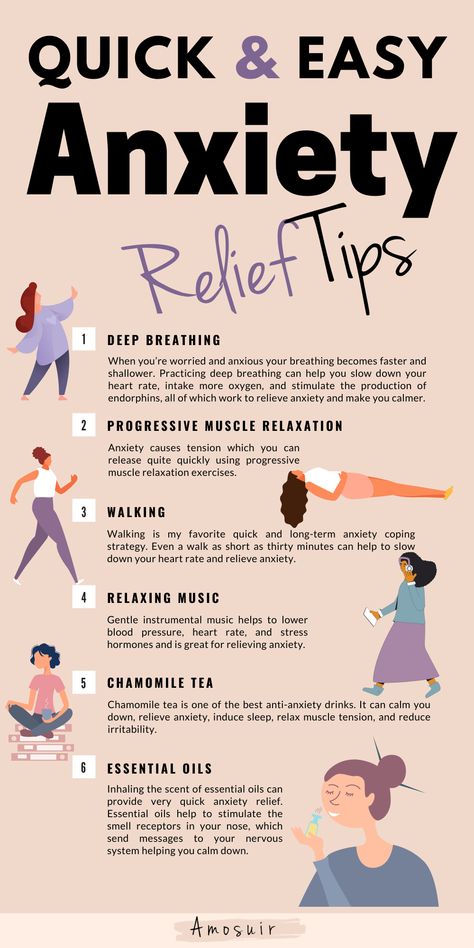 Such a life of a hermit, communication only with a computer or in social networks, a virtual lifestyle deprives a person of a sense of reality and often leads to life maladjustment. For some time, such a comfortable position for him suits the sociophobe, but sooner or later he begins to realize the futility of such an existence, lack of communication, the impossibility of creating a family and achieving professional success. Ultimately, such a situation for a person, as a social being, often ends in deep depression with all the ensuing consequences, up to and including suicide. nine0011 We found out how dangerous the fear of society is, but how to treat social phobia largely depends on its type. It is known that there are two forms of social phobia:
Such a life of a hermit, communication only with a computer or in social networks, a virtual lifestyle deprives a person of a sense of reality and often leads to life maladjustment. For some time, such a comfortable position for him suits the sociophobe, but sooner or later he begins to realize the futility of such an existence, lack of communication, the impossibility of creating a family and achieving professional success. Ultimately, such a situation for a person, as a social being, often ends in deep depression with all the ensuing consequences, up to and including suicide. nine0011 We found out how dangerous the fear of society is, but how to treat social phobia largely depends on its type. It is known that there are two forms of social phobia:
• Isolated, single monophobia, when fear arises only in a specific social situation, for example, when eating in public, talking with high-ranking persons, performing certain work in the presence of others, even close ones, people. For example, cutting an ordinary salad under the watchful eye of a girlfriend, a picky husband or mother-in-law can turn into a real nightmare - everything will fall out of hand, the knife will not obey, the oil will overflow, salt and pepper will spill over, and the dish will eventually deserve general disapproval.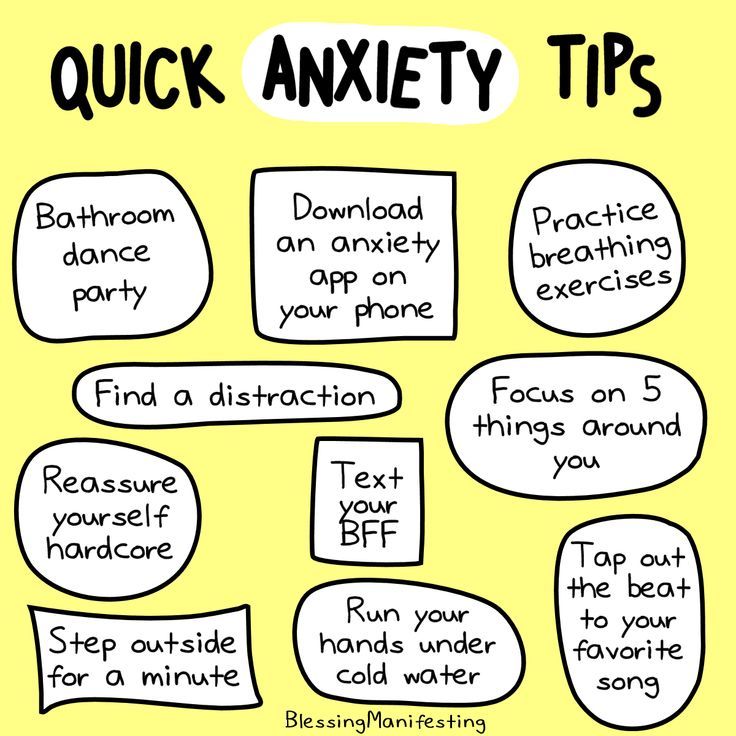 Naturally, this will only increase the fear and anxiety of strangers in the kitchen. Isolated phobias also include ereitophobia - the fear of appearing awkward, experiencing confusion, or, God forbid, blushing in a company, especially when people of the opposite sex are in it. nine0011 • Generalized social phobia, when the list of situations that frighten a person includes almost all possible contacts and circumstances that require communication with other people at any level. The increased reaction of avoidance leads to the fact that the psychosocial orientation is violated, inadequate adaptation to fears is formed, social ties are broken and all spheres of human activity suffer.
Naturally, this will only increase the fear and anxiety of strangers in the kitchen. Isolated phobias also include ereitophobia - the fear of appearing awkward, experiencing confusion, or, God forbid, blushing in a company, especially when people of the opposite sex are in it. nine0011 • Generalized social phobia, when the list of situations that frighten a person includes almost all possible contacts and circumstances that require communication with other people at any level. The increased reaction of avoidance leads to the fact that the psychosocial orientation is violated, inadequate adaptation to fears is formed, social ties are broken and all spheres of human activity suffer.
It is already impossible to deal with such an extended social phobia on one's own - one cannot do without medical intervention, especially when comorbid (combined) mental disorders appear. nine0003
How to overcome social phobia on your own?
If a person suffers from monophobia, then there is a high probability that he will be able to cope with it on his own. But the consultation of a psychologist or psychotherapist obviously does not hurt. The specialist will be able to give recommendations based on your type of nervous system, the main channel of perception of information, specific life circumstances and the severity of the symptoms. Of course, I can give some practical advice on getting rid of social phobia on my own, but I still insist on the need for a preliminary consultation. nine0003
But the consultation of a psychologist or psychotherapist obviously does not hurt. The specialist will be able to give recommendations based on your type of nervous system, the main channel of perception of information, specific life circumstances and the severity of the symptoms. Of course, I can give some practical advice on getting rid of social phobia on my own, but I still insist on the need for a preliminary consultation. nine0003
So, first of all, a person with manifestations of social phobia should change his way of thinking:
• Completely get rid of negativism in relation to himself.
• To firmly understand that he has something to say and offer to others.
• Realize the pointlessness and futility of avoiding the company of other people, as well as the fact that they are not monsters and they have something to do other than discuss your qualities and actions.
• Convince yourself of your purposefulness and the importance of your own thoughts and actions.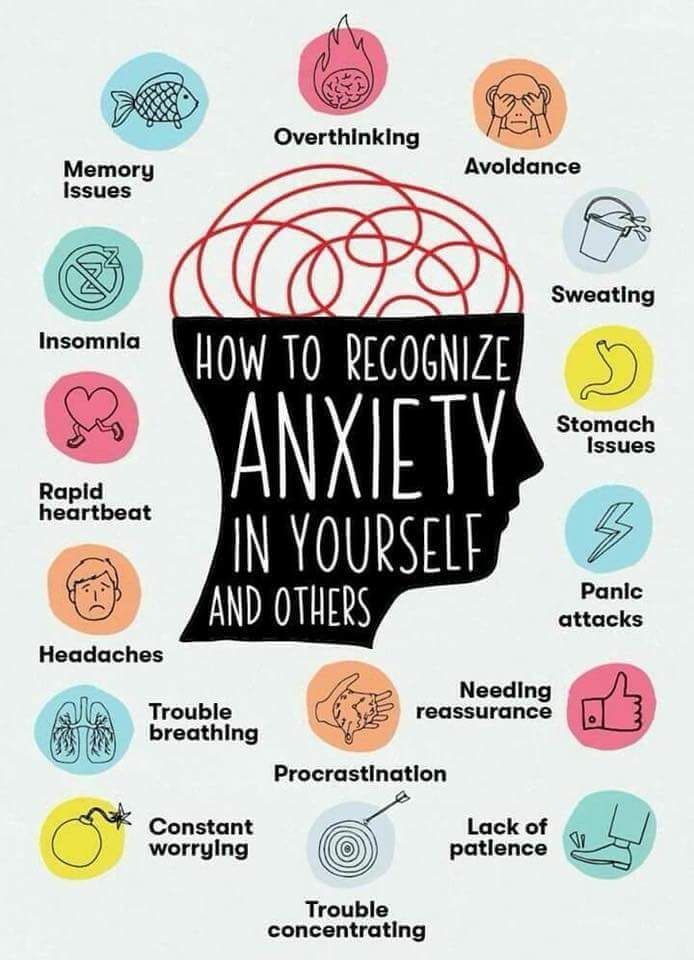 nine0003
nine0003
You can achieve these results and learn to think positively if you think about it for 10-30 minutes every day.
In addition, if you do not want to seek the advice of a psychotherapist, you can find on the Internet people with similar problems who have successfully coped with social phobia. Find out how they managed to do this, and try to find the most positive and acceptable solution for yourself on how to overcome social phobia in yourself.
Positive thoughts are followed by the next stage - getting rid of fear. After all, no matter how positively you set yourself up, anxiety and fear, a feeling of discomfort and awkwardness when communicating with other people still remain. You should act like this:
• At the first sign of panic, breathe deeply, don't make sudden movements, and don't convince yourself that you're not afraid. Violent denial of fear can only increase it. Just try to fix your attention on something else, like the rhythm of your breath. Do not avoid situations that scare you, even carefully go towards them and each time accept the challenge of your own phobias.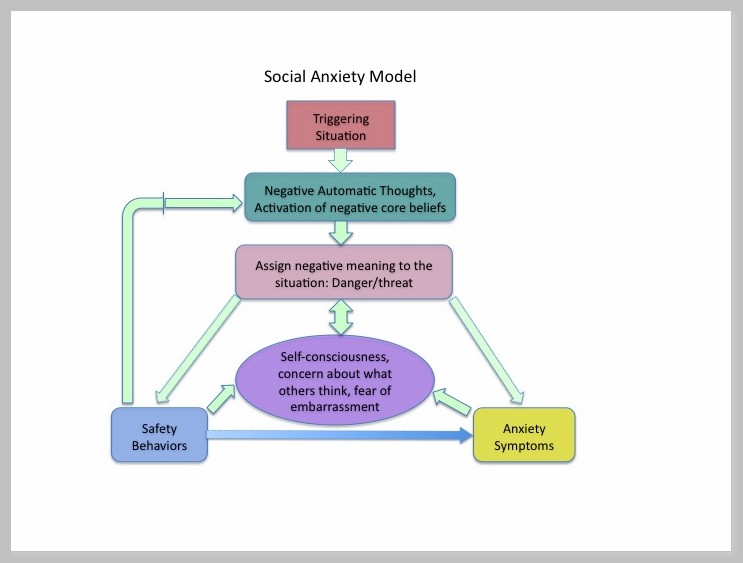 Believe me, only the one who fights wins.
Believe me, only the one who fights wins.
• You should not start with sudden attempts to immediately plunge fully into your fear, start small and gradually. For example, if you are afraid of the crowd, then you should not immediately mix with a large number of people - just stand in the distance, watch what is happening. Then you can start asking questions to strangers, such as what time it is, how to get somewhere, etc. Subsequently, you can try to speak with a person of the opposite sex. nine0011 • Establishing business connections and contacts will be the next step in the fight against fear. Make purchases yourself, ask the opinion of other buyers about the product, contact sellers and managers for advice, boldly warn about your stop in transport, and do not wait for someone to demand it before you. Be moderately active in such situations and over time, fear will become less and less.
• Try not to depend only on the opinions of others, increase your self-esteem, trust your opinion and intuition.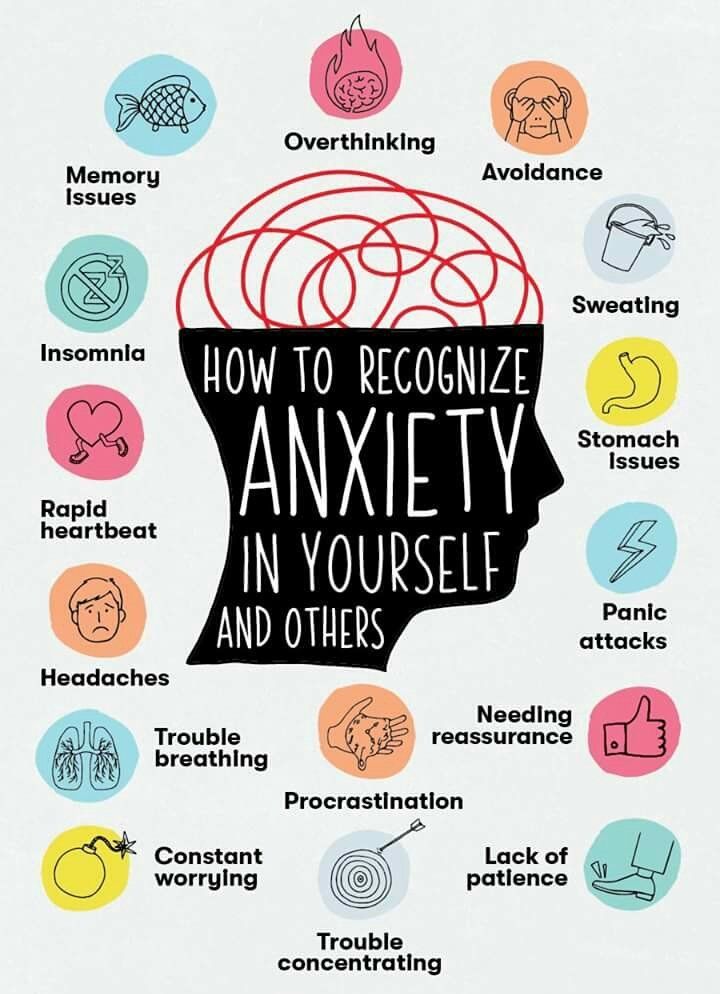 Hear your inner voice and then others will hear you. nine0011 To overcome the feeling of insecurity, to become convincing for yourself and others, do the following exercises:
Hear your inner voice and then others will hear you. nine0011 To overcome the feeling of insecurity, to become convincing for yourself and others, do the following exercises:
• Develop beautiful speech by reading poetry aloud.
• Inventing and presenting speeches for oneself on any subject.
• Telling yourself about the day's activities and the weather.
• Coaching for close communication skills.
• In front of a mirror, you can even try pantomime, showing with signs what you want. This will allow you to feel more relaxed and relieve the fear of looking ridiculous and ridiculous. nine0011 And yet, you always need to be internally ready for communication, for the fact that someone wants to ask you about something or find out your opinion on a certain problem. In order not to get into an awkward position, first delve into the essence of the question, and then answer. Understand that your opinion is really important to others if they are interested in it.
In summary, I can give you a rough plan for treating social phobia on your own:
• Acknowledge your problem, don't deny it, and don't put it off until later. nine0011 • Change your lifestyle, be kind and cautiously active, stay less alone and try to go out "in public".
nine0011 • Change your lifestyle, be kind and cautiously active, stay less alone and try to go out "in public".
• Don't forget the above workouts.
• Develop a sense of humor in yourself, know how to laugh at yourself and your fears. After all, nothing terrible happened from the fact that they made fun of you or laughed at you. Remember the old Jewish joke: "It's scary not when they laugh at you, but when they cry at you."
• Do not use doping in the form of alcohol to raise sociability, much less soft drugs. nine0011 • Do not accumulate resentment in yourself and do not hold evil. Resentment and hatred are bad advisers in establishing communication with other people and are destructive to the psyche.
If all your attempts have not brought significant results, seek professional help from a psychotherapist who will competently assess the depth of your problem and prescribe adequate psychotherapeutic, and, if necessary, medication.
Tell us more about the psychotherapeutic and medicinal methods of treating social phobia.
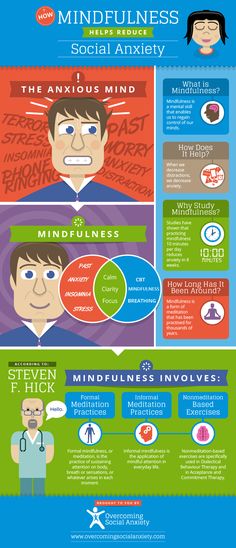 nine0007
nine0007 The most effective and promising direction of psychotherapy in the treatment of social phobias is cognitive behavioral therapy (CBT), in particular group sessions and the method of exposure. The patient is gradually accustomed to relate without fear and anxiety to previously disturbing situations. Acting in a group, participating in role-playing games and trainings, a person restores previously lost communication skills and acquires new ones, develops an adequate line of behavior in society in various situations, forms new mental attitudes based on a sense of dignity and awareness of his significance and uniqueness as a person. For example, during assertive training, a person learns to defend his opinion, not depend on external circumstances and assessments, independently choose a line of behavior, control and be responsible for it. Self-respect and respect for others, the desire to reach a reasonable compromise, the ability to hear and understand another person, and also to make others listen to themselves - the goal of such group activities.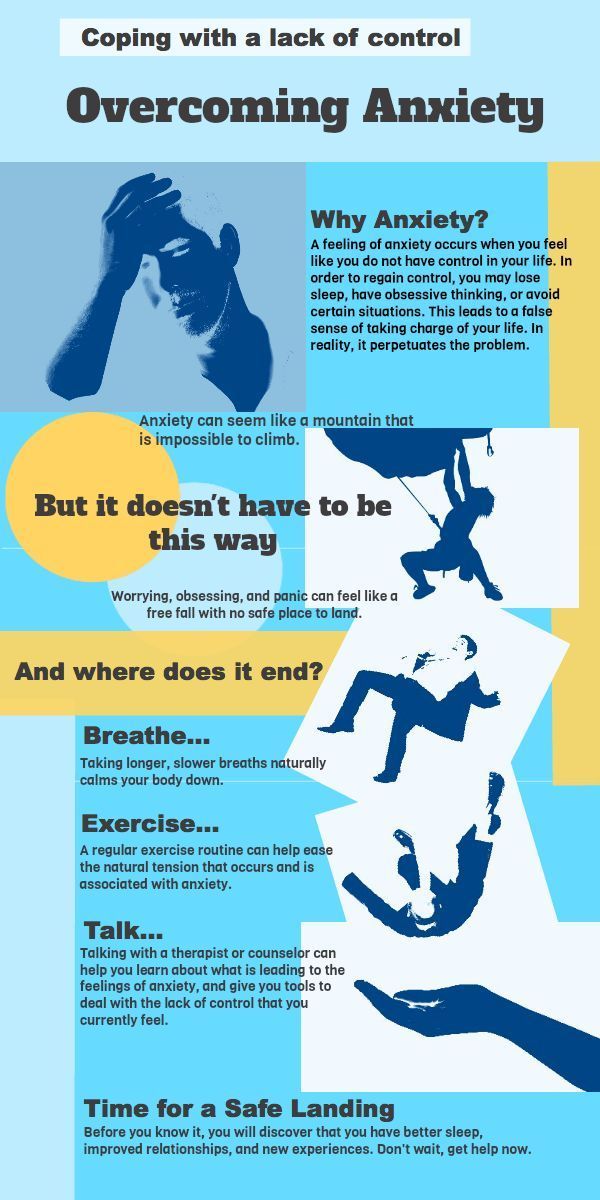 The patient also learns to control his physical responses to fear and anxiety. For example, a patient with hands that begin to tremble when communicating is offered to write on the board in a group or pour tea for everyone. nine0003
The patient also learns to control his physical responses to fear and anxiety. For example, a patient with hands that begin to tremble when communicating is offered to write on the board in a group or pour tea for everyone. nine0003
Ultimately, a person must understand their rights, which boil down to the following postulates:
• I have the right to evaluate my own behavior, thoughts, feelings and bear full responsibility for this.
• I am under no obligation to explain, justify or justify my behavior to anyone.
• I myself decide to answer or not to answer for the problems of others, and if I answer, then how deeply delving into.
• I have the right to make mistakes, illogical actions and decisions, change my views and am ready to be responsible for this. nine0011 • I have the right to say: “No”, “I don't know”, “I don't care”, “I don't understand you”.
• I must not depend on the opinions of others and their good will.
Of course, it is important not to overdo it, so as not to get a hardened egocentric and individualist from a sociophobe. A sense of proportion and the right balance of one's own and others' interests are important here. You need to be free and independent, but not ignore the interests and desires of others.
A sense of proportion and the right balance of one's own and others' interests are important here. You need to be free and independent, but not ignore the interests and desires of others.
Social phobia, the treatment of which by purely psychotherapeutic methods has not been effective enough, can be symptomatically alleviated or eliminated with the additional use of drugs aimed at eliminating the symptoms of anxiety, fear and depression. Among them are the following:
• Antidepressants, including SSRIs - selective serotonin reuptake inhibitors, norepinephrine and serotonin reuptake inhibitors (NRIs), and a monoamine oxidase (MAO) inhibitor called moclobemide.
• Benzodiazepines (clonazepam), which can only be used as a short-term treatment option despite their effectiveness due to the risk of dependence and withdrawal.
In conclusion, I want to say that the sooner a person recognizes the presence of social phobia and turns to specialists, the more effective and less radical the treatment will be, the safer the consequences for the psyche and the less disruption of social ties.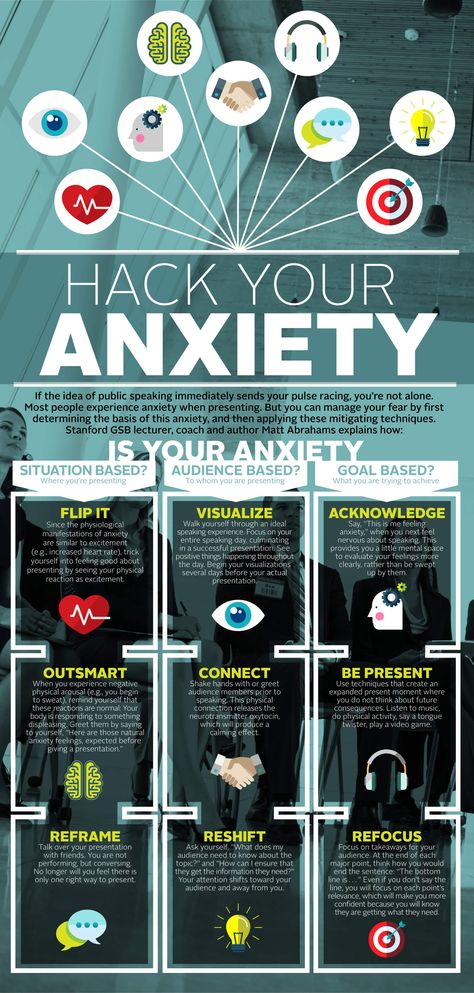 And this will minimize negative changes in all areas of activity of each individual patient. nine0011
And this will minimize negative changes in all areas of activity of each individual patient. nine0011
We asked a psychologist: how to overcome social phobia | Lifestyle
Lisa.ru
Anxiety disorders are the scourge of our time. One of the most common is social anxiety disorder, which interferes with a normal life, communication and career.
Source here and below: shutterstock.com
Symptoms and signs of the condition
How to get rid of social phobia
How to stop being a social phobia
The term social phobia refers to persistent fear of speaking in public and other social activities. This is a fear of attention from outsiders, an unwillingness to be in society. For example, the fear of sidelong glances from passers-by, criticism. We will tell you what social phobia is and how to deal with it. nine0003
Who are social phobes
These are people who are constantly in anxious expectation of a negative assessment of others. They avoid society or a large company, but they are not afraid of people. The first signs of the condition begin to appear at school age.
They avoid society or a large company, but they are not afraid of people. The first signs of the condition begin to appear at school age.
The basic fear of sociophobes is the idea that they will be perceived as narrow-minded, unsympathetic, inept. The desire to avoid a negative assessment leads to the fact that in real life they are completely different from the stereotype that has developed: usually social phobes are presented as gloomy and withdrawn. However, they can be very cute because they want to make a good impression. nine0003
What changes in people's behavior
- Avoid difficult situations because of the expectation that their phobias or shortcomings may manifest themselves
- Scrupulously, to the smallest detail, plan meetings situations.
That is why their colleagues and good friends may not even be aware of the problem.
It is impossible to identify a sociophobe “by eye”. But knowing the characteristics of human behavior, his habits - it is quite possible.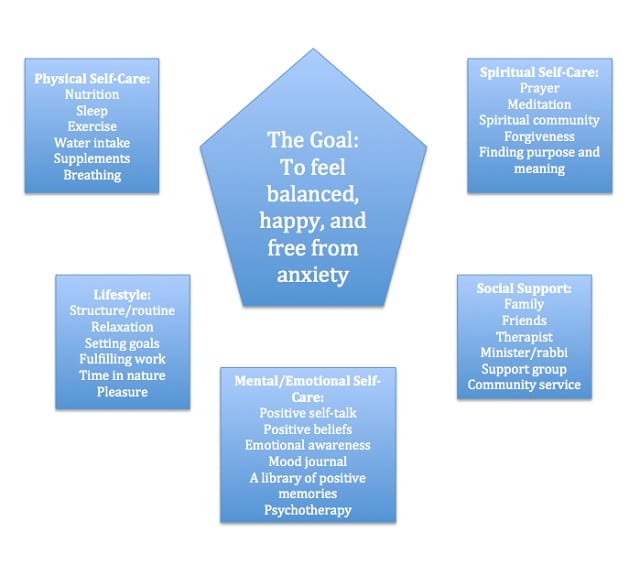 Signs of social phobia can be divided into three main groups. nine0003
Signs of social phobia can be divided into three main groups. nine0003
1. Cognitive
A person with a similar disorder experiences great stress from thinking about how he will be evaluated by other people: colleagues, casual acquaintances. A sociophobe is always focused only on himself - how he looks, whether his behavior is correct from the point of view of others. The subject makes high demands on himself and is never satisfied with himself.
Attributes
- The desire to make an exceptionally good impression on others. nine0115
- Tendency to "replay" various scenarios and situations in the head. This is done to prevent potentially dangerous moments that provoke anxiety.
- Anxious thoughts, constantly recurring. They become obsessive and can torment a person for days and even months after a stressful or unpleasant situation.
Another feature is the tendency to retain only unwanted memories. Usually people forget negative moments much faster, while social phobes fixate on them.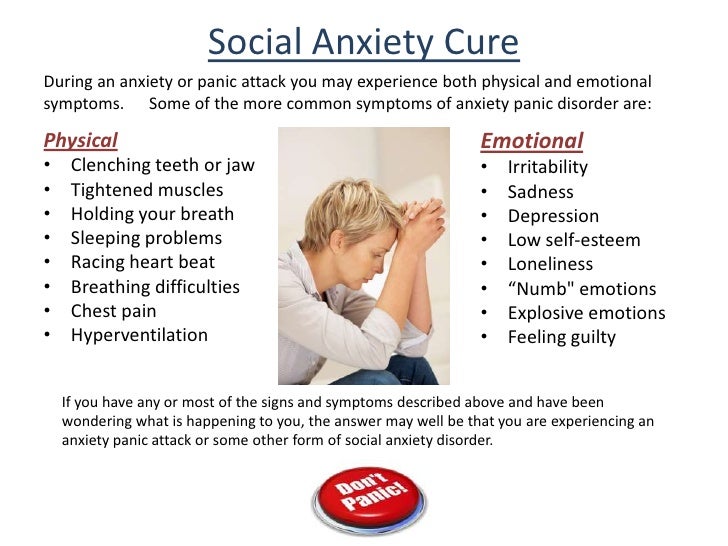 nine0003
nine0003
2. Behavioral
This state of increased anxiety can lead to serious disturbances in a person's life. The subject will avoid even short-term human contact, especially in small groups.
The social phobe tries not to talk to strangers, refuses to visit restaurants and other public places. Another pronounced behavioral feature is that such people do not look into the eyes of the interlocutor.
According to the American psychologist Burres Skinner, any fears, especially social phobia, are determined by avoiding behavior. A person is wary of any situations and meetings that, even theoretically, could provoke anxiety in him. nine0003
3. Physiological
These features overlap with other anxiety spectrum disorders.
- Tendency to tearfulness, excessive emotionality
- Excessive sweating
- Attacks of nausea
- Breathing problems
Trembling of hands or feet may occur. Less commonly, the condition is accompanied by a change in heart rate.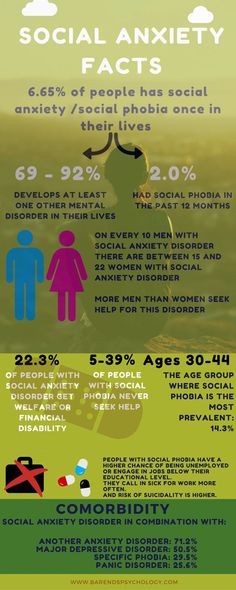 The latter occurs with a pronounced form of the disorder.
The latter occurs with a pronounced form of the disorder.
Basically, the therapy of social phobia is based on the use of psychotherapeutic methods of recovery. The most common are cognitive behavioral therapy (CBT), hypnosis, and group therapy. nine0003
Sometimes medication is needed, which can be prescribed by a psychiatrist. As a rule, we are talking about the appointment of antidepressants and anti-anxiety drugs. There are no pills for social phobia, they can only muffle anxiety a little. The main treatment for social phobia is psychotherapy.
1. Cognitive Behavioral Therapy
CBT allows you to achieve sustainable results. The leading goal of the program (both group and individual) is to teach not subjective, but objective perception of uncomfortable thoughts. Such therapy trains a person to look at his fears from the outside. nine0003
Aaron Beck believes that it is necessary to develop a calm attitude towards problematic, disturbing situations in a person.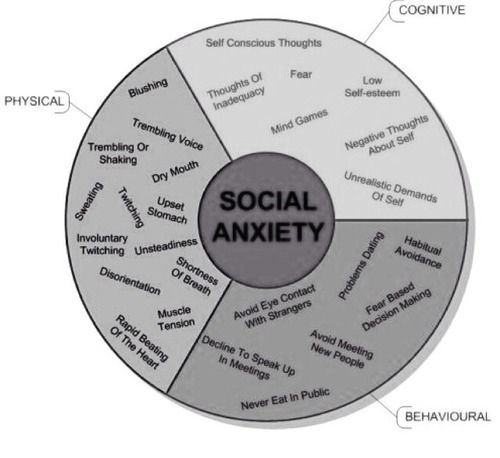
You can defeat social phobia by contacting a psychologist working in the cognitive-behavioral direction.
- The first part of therapy is devoted to informing. The specialist explains why the disorder develops and what "feeds" it.
- The second part includes various exercises. They are aimed at getting rid of increased anxiety. nine0115
- The third part is aimed at preventing relapses. At this stage, it is important to consolidate the acquired skills and knowledge.
Vera Gulyaeva, psychologist
Cognitive therapy is considered the gold standard in the treatment of social phobia. According to recent studies, the effect of CBT is long-term and maximal without medication. Sometimes people come with a request: “I want not to worry at all, not to be afraid, not to worry!”. But anxiety has its own evolutionary tasks, and it was it that helped humanity survive. Our goal is to reduce anxiety to an optimal level so that it does not interfere, but, on the contrary, slightly spurs, helps to become better.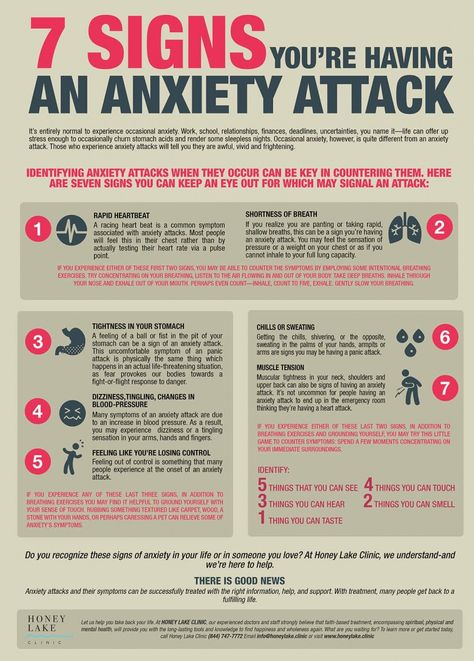 Not interfering, but helping in work and personal life. nine0003
Not interfering, but helping in work and personal life. nine0003
The main changes in behavior after therapy are expressed as follows:
- skills of behavior in various situations appear;
- a person learns to control anxiety;
- becomes more calm in dealing with people and in other "social" situations;
- Skills for self-study and self-instruction are additionally acquired.
2. Hypnosuggestive psychotherapy
This is another effective method of treating social phobia, in which there is a verbal and sound effect on the human psyche. nine0003
In these sessions, the patient is instilled with new beliefs. Settings are “introduced” into the psyche, facilitating adaptation. Moreover, at two levels - both in consciousness and in the subconscious.
As a result of such therapy, a person loses his former perception of himself as a person. He begins to interpret his behavior and the reaction to it in society in a different way.
In addition to treatment by professionals, you can change some qualities in yourself on your own.
- Finding a support group is important. At first it may be acquaintances on the Internet. It is easier to communicate with them, to share experiences. After that, talk to real people. For example, family members, friend, classmate, colleague. nine0115
- Gradual resurrection of faith in personal strength and the adequacy of self-esteem. This is the basis, the basis for getting rid of social phobia. It is important for a person to work on self-confidence, constantly study and find their strongest sides, focus on them.
- Destruction of the comfort zone. It may seem strange, but in the fight against anxiety, the principle of "wedge by wedge" often helps. An interest club is perfect for this: poetry, books, music, movies. In general, any society, communication with which will bring joy and pleasure. The second part of this difficult path will be the conscious passage through the most frightening situations.
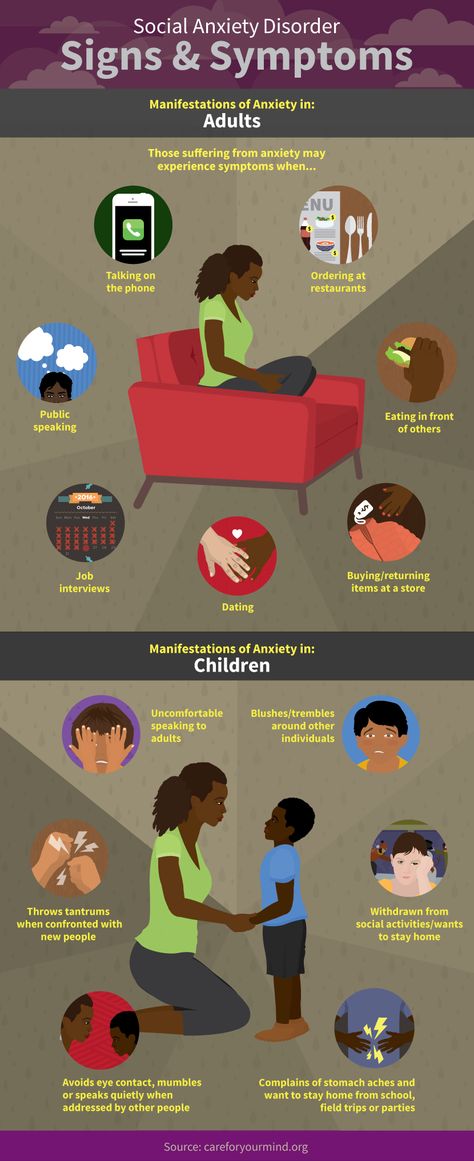 But do it after the first step. nine0115
But do it after the first step. nine0115 - You need to understand yourself. A person tends to attribute his shortcomings or not the most pleasant features to other people (often unconsciously). Therefore, many sociophobes expect from acquaintances what they are capable of or not capable of. Such false expectations lead to disappointment, so you need to honestly evaluate yourself and others.
To stop being a sociophobe, it is necessary to formulate the cause of the condition. If it is associated with a specific situation or a specific person at work, from the inner circle, you need to say it. nine0003
Social phobia is not a sentence, this unpleasant condition can be eliminated.
References:
1. Paroxetine, Cognitive Therapy or Their Combination in the Treatment of Social Anxiety Disorder with and without Avoidant Personality Disorder: A Randomized Clinical Trial.
2. Cognitive-behavioral treatment of social phobia: New advances
3. Cognitive psychotherapy, A.